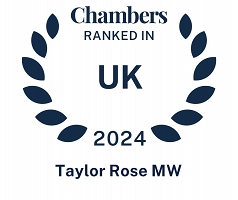News
Watershed fixed costs development

MATTHEW HOE >
Director of Risk & Compliance
Thu 28 December 2017Circuit Judge rules that Part 36 acceptance does not oust the court’s power to limit to portal costs following unreasonable exit from the RTA Protocol
Her Honour Judge Melissa Clarke in the County Court at Oxford has given a very helpful judgment on a vexed point concerning CPR 45 Section IIIA fixed costs cases: can a claimant be limited to the lower Section III costs after unreasonably exiting the RTA Protocol when the claim settles under Part 36?
In such claims, CPR 36.20(2) says:
Where a Part 36 offer is accepted within the relevant period, the claimant is entitled to the fixed costs in Table 6B, Table 6C or Table 6D in Section IIIA of Part 45 for the stage applicable at the date on which notice of acceptance was served on the offeror.
In Ansell & Evans v AT & T, the claimants argued that was an absolute entitlement and they could not be limited to RTA Protocol costs under the power in CPR 45.24. The deputy district judge found that they had acted unreasonably, and dismissed their application for a declaration that Section IIIA fixed costs applied. The claimants appealed against the unreasonableness finding and also took the technical point that the decision was ultra vires.
At first blush, the claimant had a compelling argument. The wording of the rule did seem to suggest an absolute entitlement. But, as ever, simple arguments can be deceptive. The defendant argued the rules needed to be construed purposively and made several points:
- Solomon v Cromwell was Court of Appeal authority that an entitlement to costs under Part 36 gave way to a more specific rule for the specific category of claims;
- CPR 36.20 does not create a complete costs scheme, so it has to be read in conjunction with Part 45. For instance, it doesn’t provide for VAT, London weighting or interim application costs;
- on the claimant’s reading, disease claims excluded by CPR 45.29A(2) from fixed costs would be forced back in by Part 36;
- it made no sense why claimants who settled by Part 36 should be shielded from being limited to Section III costs, but those who settled otherwise were not; and
- if the court’s power to allow less under CPR 45.24 was ousted, then so too must the power to allow more under CPR 45.29J be ousted.
Her Honour Judge Clarke dismissed the appeal.
She considered that CPR 45.29B is the general rule for this category of claims, and that CPR 36.20 was a specific rule; but so too was CPR 45.24 a specific rule, so the Solomon canon of construction was not a complete answer. There was tension between CPR 36.20 and CPR 45.24 and how they affected the general rule.
She found it was necessary to take a purposive approach and was influenced by two main points:
- first, that there was a link between CPR 36.20 and CPR 45.24; CPR 36.20(1) cites CPR 45.29A(1), which in turn cites CPR 45.29A(3), which in turn cites CPR 45.24; and
- second, that there was indeed an apparent inability to recover VAT and London weighting if the claimants’ construction were right, but that could not have been intended.
She also took into account policy considerations. If the claimants were right it would discourage the making or acceptance of Part 36 offers.
She went on to uphold the district judge’s finding on unreasonable exit.
This was an interesting case, and a good opportunity to tackle an argument that seemed to be an urban myth, as I had not had a case on it before. It appears to have arisen several times before district judges, and perhaps without full analysis of the rules there have been some aberrant results. The simplicity of the claimants’ argument compared to the more complicated correct answer may well seem attractive in the confines of a busy list. This judgment seems to be the first at circuit level and is carefully reasoned, and should draw a line under this particular Part 36 argument. Instead, CPR 45.24 arguments will normally be decided on the substantive merits rather than technical points about curtailment of the court’s powers by Part 36. The principles here would apply equally to exits from the EL/PL Protocol as well as the RTA Protocol.
For further information, please contact Taylor Rose TTKW’s director of dispute resolution, Matthew Hoe.





















